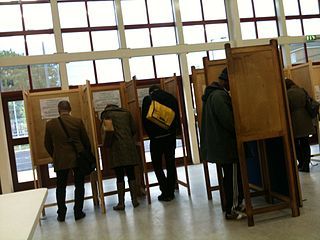Voting? Why Not Choose a Progressive Energy Policy?
It’s Election Day in the United States, much anticipated here for several reasons, perhaps chiefly insofar as it means an immediate cessation of the horrifically mean-spirited and misleading campaign advertising.
I just got back from the polling place and found this email from Ralph Avallone, who serves as president of the National Green Energy Council, a non-profit green energy advocacy group. Their main push is job creation in the green energy sector, certainly a laudable goal. Avallone concludes:
Please get out and vote today…The future of our nation as an economic superpower depends on it.
Absolutely true. I would only add: Vote in such a way as to maximize the probability that we will soon have a progressive energy policy that both: a) puts millions of people back to work and b) addresses the many different kinds of catastrophes associated with a “business as usual” approach to the subject.


Why would anyone who is truly concerned about CO2 emissions fail to support any research that may lead to a better solution than current proposals?
Surely we are already doing plenty of research on wind power, solar power, and energy storage technologies. It may be that we should also be doing more research on geothermal energy. But why do environmentalists fail to support research on nuclear technologies that could well avoid the problems associated with our current nuclear technology? Can they prove that such research could not lead to an excellent solution that would be better than wind or solar?
In the early days of cars, many people broke their arms crank-starting the engine. There was no call to ban cars and revert to animal power because of the risk of being injured cranking the engine. Instead, research led to a solution, i.e., the electric starter. Similarly, research on nuclear reactor designs may well lead to designs that are more economical, reliable, and practical than wind and solar power, but it seems that that possibility is being ruled out. The logic of that escapes me.